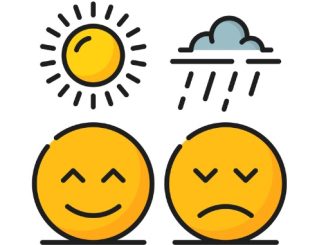
The NHS’s top cancer doctor has urged the public to check for changes in their body and cancer symptoms, as a new survey found people were nearly twice as likely to check the weather forecast or their bank balance regularly than check themselves for potential signs of cancer
As reported by Wired.gov, a new NHS survey of 2,000 Brits found that only 4 in 10 (39%) look for changes to their bodies at least once every 3 weeks – despite this being vital in spotting potential signs of cancer.
The results found people are more likely to regularly check their bank balance (80%), the weather forecast (70%), sport results (42%) and upcoming entertainment such as TV shows (41%), than they are to check for changes in their body.
The NHS advises people to regularly check for any new lumps or unexpected changes in the body to help identify any possible symptoms of cancer.
While most changes are unlikely to be cancer, it’s important to get any new or worrying symptoms checked out by a GP as soon as possible so they can help rule cancer out. Finding cancer early means it’s easier to treat.
Thanks to advances in care and early detection and improved public awareness, the NHS is now diagnosing and treating more cancers than ever before at an earlier stage, with more people than ever surviving the disease.
Monthly data published last week shows that more than four fifths of people received the all clear or definitive cancer diagnosis within four weeks of an urgent cancer referral – the highest proportion on record.
The NHS’s early diagnosis drive has seen the NHS catching more cancers at an early stage than ever before – recent data on 13 of the most common cancers, such as breast, prostate and lung cancer, shows that nearly 3 in 5 patients are now being diagnosed at stages 1 or 2, when cancer is easier to treat and the chance of survival is higher.
Over the last 2 years, the NHS has encouraged millions of people to come forward for potentially life-saving screening, especially those who may be at higher risk as a result of hereditary or lifestyle factors.
This includes the innovative Lung Cancer Screening Programme and Liver Health Programmes, which see hi-tech mobile scanning trucks and vans go into the heart of communities to offer checks to people at increased risk, in places like shopping centres and supermarket car parks.
Alongside attending potentially life-saving screening when invited, the NHS wants to normalise the mindset and behaviour around routine checking.


Be the first to comment